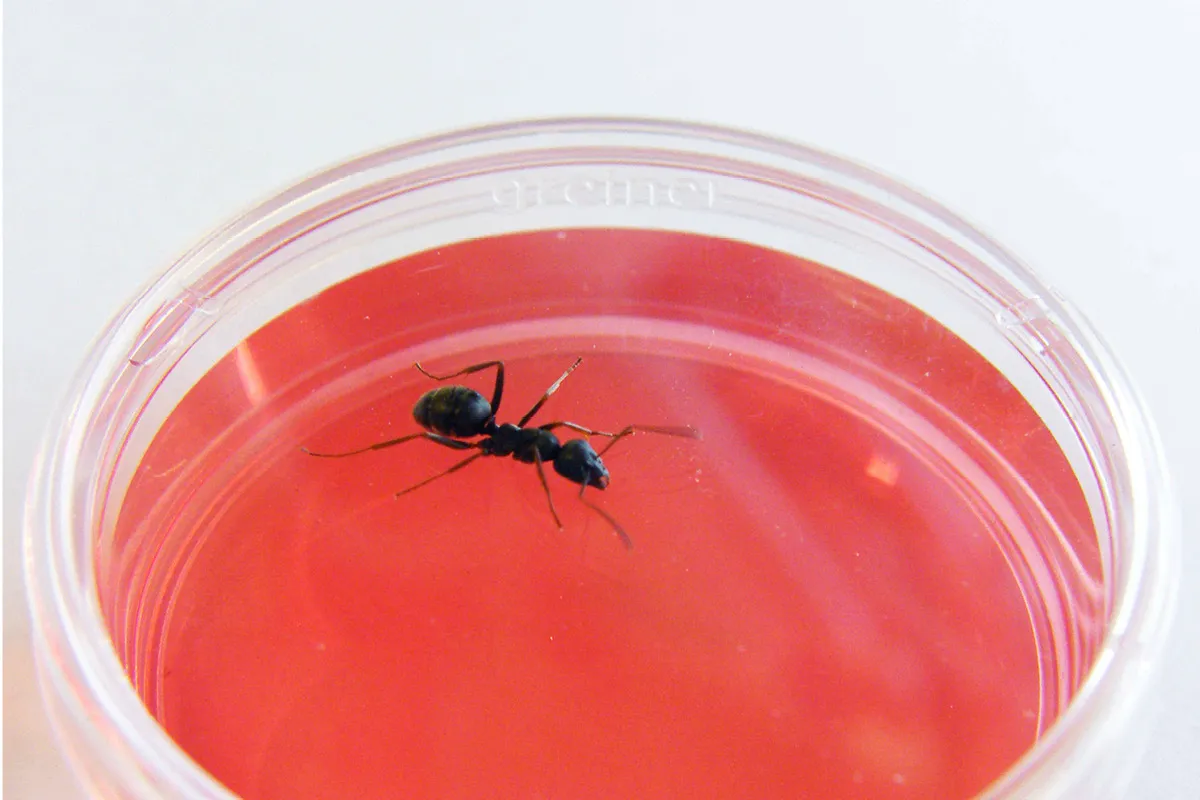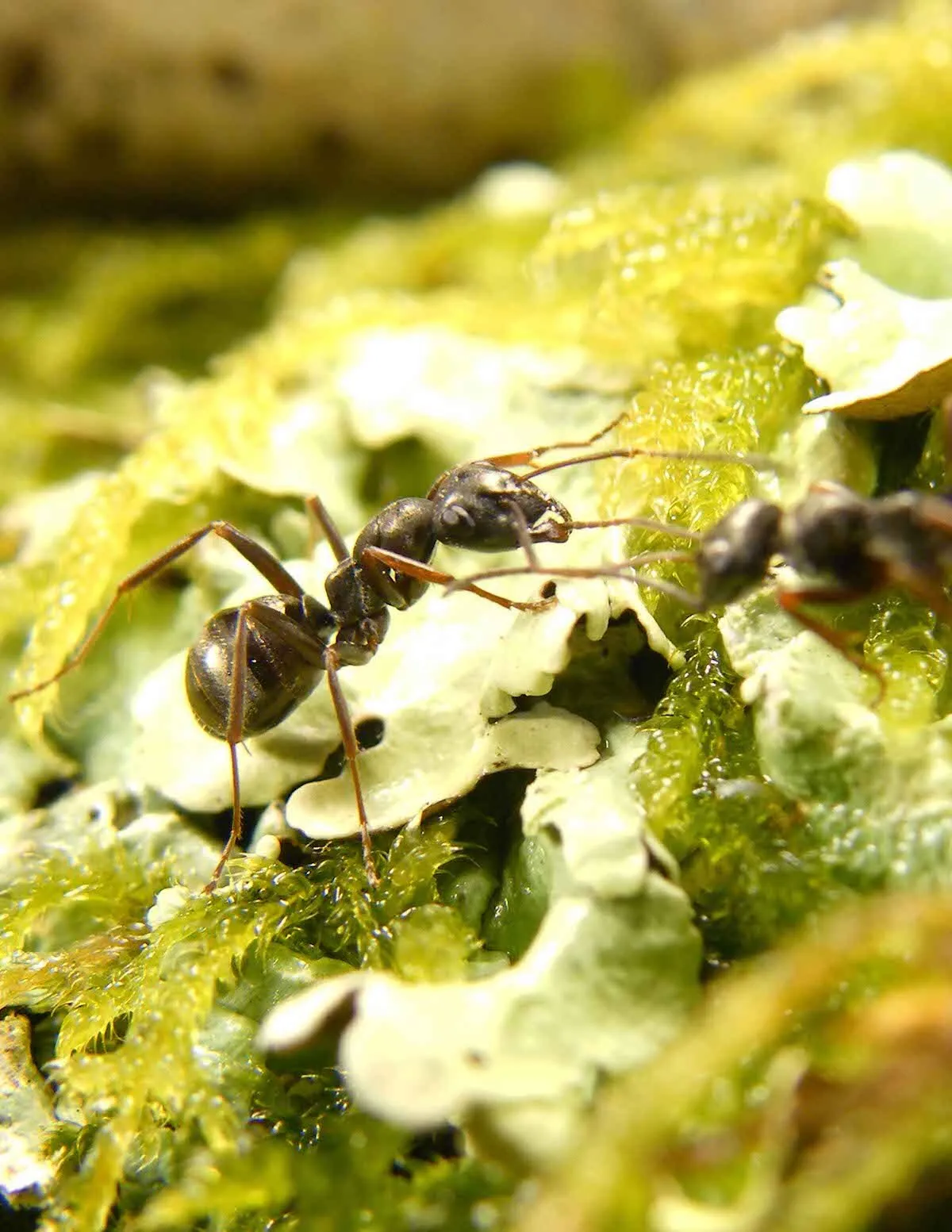Ants are able to detect cancer cells by sniffing out their unique odour, a new study has shown.
Individual ants only need a few training sessions to learn the scent of cancerous cellswhich researchers said make them more "feasible, fast and less laborious" than using other animals.
While this is the first study of its kind, researchers said it shows the potential of ants to act as a cancer bio-detector.
When cancerous cells grow they produce specific compounds, which can be detected using high-tech equipment or picked up by animals with especially sensitive noses. Dogs can smell cancer, as has been shown in recent research – one study found our canine companions could sniff out lung cancer with nearly 97 per cent accuracy.
However, training dogs is a lengthy and costly process. So, researchers at universities in France decided to investigate using different animals to detect cancer's odour. Insects, being easily reared and inexpensive, seemed like a good choice. Their olfactory system is often crucial to their survival, leading them towards edible plants and willing mates.
Read more about insects:
- Leaf-cutter ants: The insects that are farmed by fungi
- Insect populations are dying out. Here’s why that doesn’t have to be the case
The team focused on a species of ant calledFormica fusca,which they had previously demonstrated was quick to learn. After growing cancer cells for a number of days, the researchers set up an arena in which a single ant would be presented to one empty tube, and one containing the cancerous cells. They then began conditioning the ants to recognise which was which. It took just 30 minutes of conditioning for the ants to learn how to sniff out the cancer sample.
"To train an ant, we use a training protocol called associative learning where an odour (e.g. the cancer odour) is associated to a reward, such as a sugar solution," said first author of the study Dr Baptiste Piqueret, of University Sorbonne Paris Nord.
"After several presentations of the odour and the reward, the ant will associate that the odour is a predictor of the reward, and if she wants the reward, she will start looking for the odour... Once the associative learning was done, we tested the memory of the ant by putting her in a rewardless arena with the learnt cancer odour and a novel odour (e.g. a healthy odour)."

In this second arena, the ant was shown to be searching for the cancerous odour, hoping to find a reward, which researchers said demonstrates that they can perceive the presence of cancer cells.
As different cancers will produce different odours, a second challenge for the sniffer ants was to distinguish between two types of cancerous growths. All the ants were trained the same way to detect breast cancer, but half were taught to recognise one type, and the rest were taught another. Still, the ants proved themselves to be just as good as dogs at detecting cancerous cells, able to differentiate between the two different types of breast cancer when they had been conditioned to get a reward from one and not the other.
However, the ants are still far away from being used for a real medical diagnosis.
"With this first study, we have the proof of concept that ants can learn to detect cancer odour when the odour comes from cell line cultures [grown in the lab].
"Although we need to test deeper the abilities of ants in terms of bio-detection, this proof of concept shows that ants can learn extremely fast – less than 30 minutes for most of the individuals – with a low cost method that can be achieved by anyone after a couple of days of training," said Piqueret.

The cancer cells used in the study are used all over the world in oncology labs to study the disease, said Piqueret. "[But] the human body is not composed of a single cell type, but of a myriad. We now need to assess the feasibility of using ants for cancer detection by comparing a whole organism with cancer and a whole organism without cancer. Once this will be done, we could test the abilities of ants with a human body as a source of odour."
When asked if doctors of the future could set a colony of ants on their patients, Piqueret answered: "A swarm of ants running toward you might be a good way to train for the 100m in the next Olympic Games, but not for medical diagnosis! We plan to use body fluids, such as sweat, urine, or saliva, from a patient that contain the cancer odours to train and test our ants. With this protocol, the ants will never be in contact with the patients."
Read more about cancer research:
